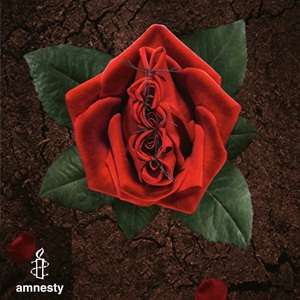
Female genital mutilation, the excision of the clitoris practiced widely in African and many Muslim countries, is a means for men to maintain control of women and must be eradicated, according to UN human rights chief Navi Pillay.
Even if a current global campaign against the practice – dubbed FGM – continued at its current level of success, it would be 60 years until the total of well over 125 million women and girls now affected was reduced by half, she said.
"FGM is a form of gender-based discrimination and violence. It is a violation of the right (of women and girls) to physical and mental integrity," Pillay told a gathering on the issue at the world body's Human Rights Council.
"As many as 30 million girls are at risk of undergoing it over the next decade, if current trends persist."
The traditional practice, often justified as a means of suppressing a woman's sexual desire and so preventing "immoral" behavior, "represents a way to exercise control over women", said the former South African High Court judge.
She was backed at the session by Chantal Campaore, wife of President Blaise Campaore of the West African republic of Burkina Faso, who has been pushing efforts on the continent to persuade communities to abandon it.
Tradition and religion
The driving factors behind FGM, Mme Campaore said, were "tradition, customs and religion". Families – in which underage children are the prime victims – went along with it because they feared exclusion if they did not.
Read: Female circumcision un-Islamic
The UN children's agency UNICEF says the 125 million plus figure of girls and women applies to the 29 countries with the highest prevalence rates. Many are in precarious health as a result of the operation.
As of last year, according to UNICEF, 98 percent of women and girls in Somalia were victims of FGM – often carried out by other female family members with no medical training. In Guinea the figure was 96 percent and in Egypt 91 percent.
It is also believed to be practiced fairly widely in some immigrant communities in Europe, where many governments have moved to make it a criminal offence.
Campaigners say that the practice is often promoted by local Islamic preachers, although senior Muslim clerics in many countries, including Egypt, have denounced it as against the ethos of the religion.
An Egyptian delegate, speaking for member states of the Arab League, told the UN session Arab states were all committed to ending FGM through health drives and by making it a crime. "It has nothing to do with religion," he declared.
Female genital mutilation in Kenya
An uncircumcised woman may not marry or have children within her tribe. Although countries such as Kenya have denounced female genital mutilation, the WHO (World Health Organization) estimates that 2 million girls worldwide still undergo this rite every year.
According to the World Health organisation, these are the different types of FMG
Type I — Partial or total removal of the clitoris and/or the prepuce (clitoridectomy).
Type II — Partial or total removal of the clitoris and the labia minora, with or without excision of the labia majora (excision).
Type III — Narrowing of the vaginal orifice with creation of a covering seal by cutting and appositioning the labia minora and/or the labia majora, with or without excision of the clitoris (infibulation).
Type III - removal and apposition of the labia minora
Type IV — All other harmful procedures to the female genitalia for non-medical purposes, for example: pricking, piercing, incising, scraping and cauterisation
Read more:
Female circumcision in US
Clitoridectomy
UK to register cases of female genital mutilation




 Publications
Publications
 Partners
Partners










